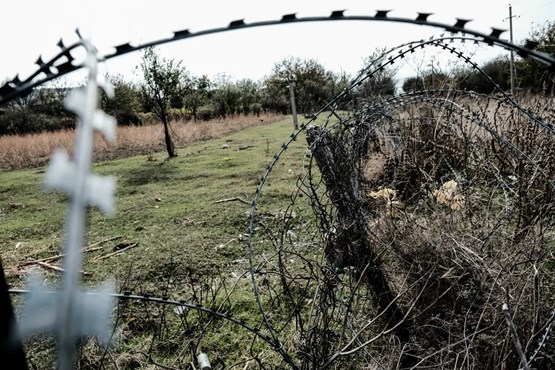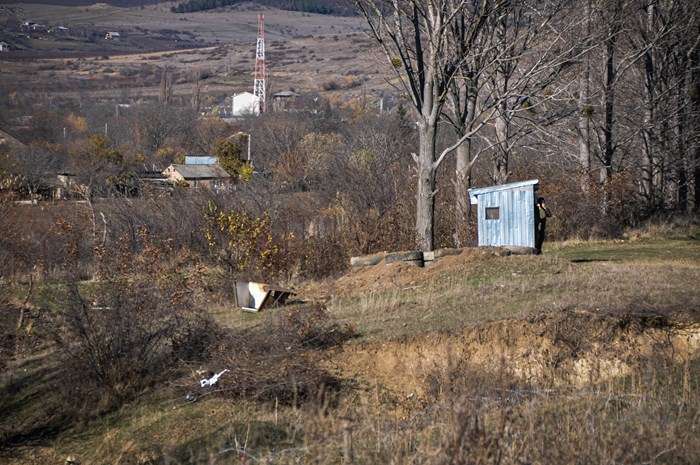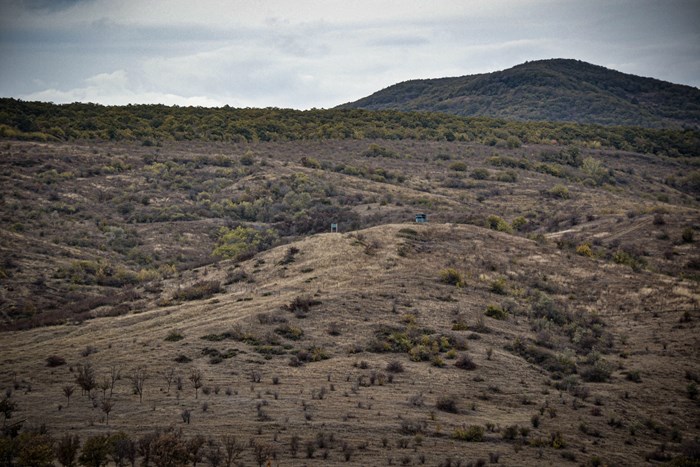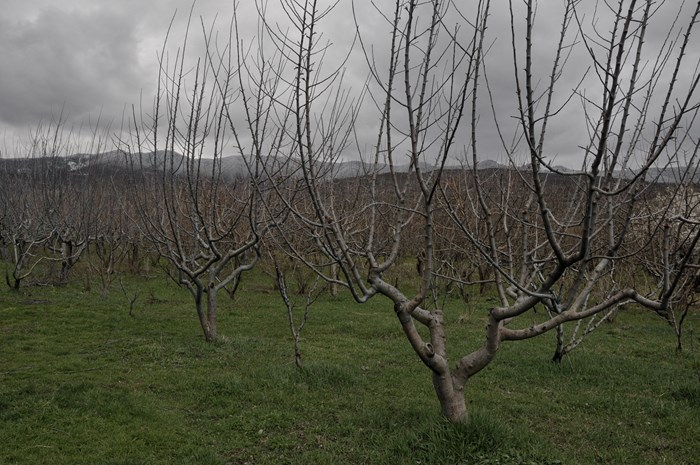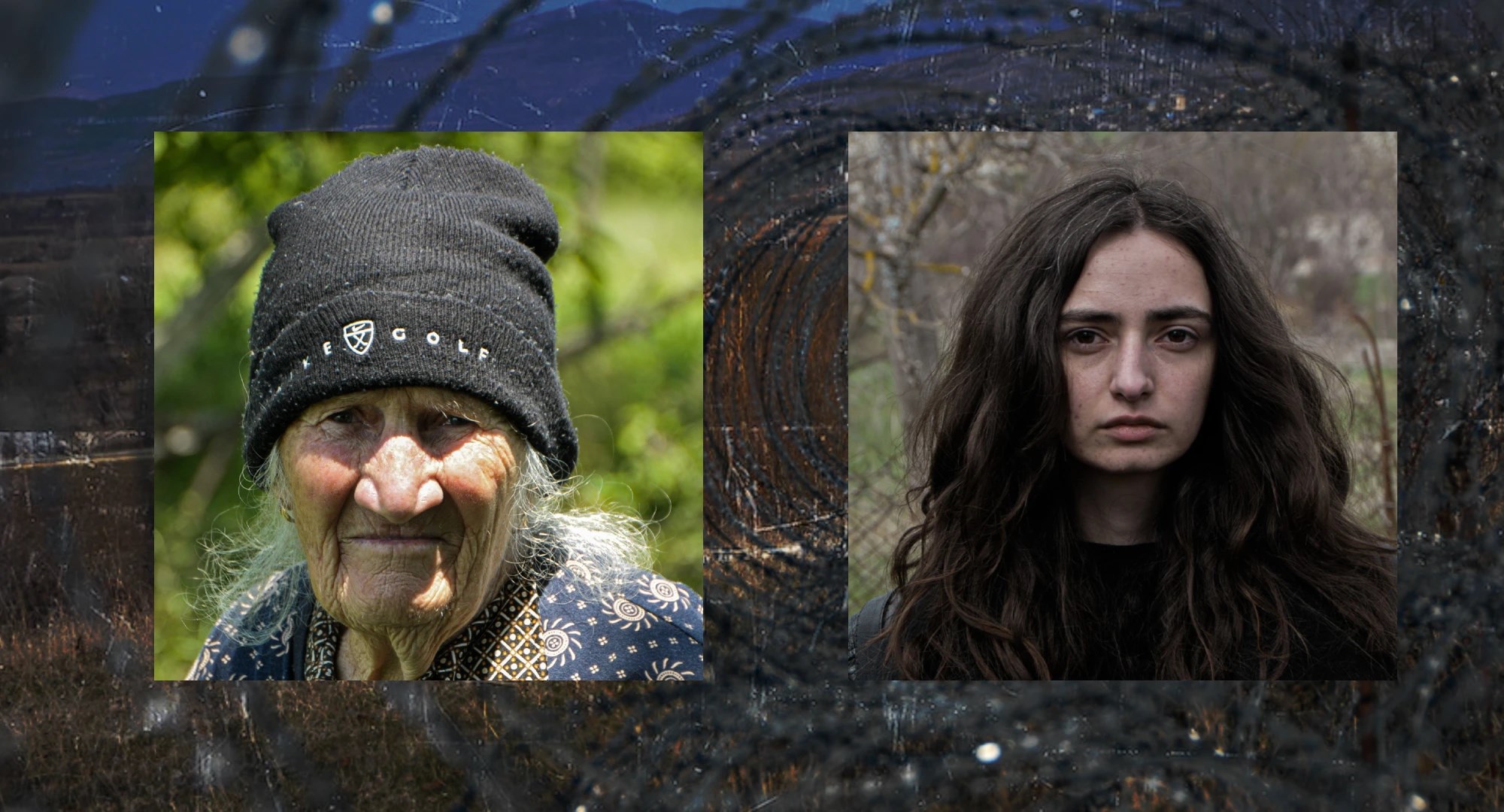
Border Flow | Photo story by Nicolo Vincenzo
08.08.2023 | 5 Min to read
Tamari Okropiridze (22). Tamari was 7 when war broke out back in 2008 and remembers every detail, the brutal referring to the war and aftermath of the conflict. Originally from Disevi village, following the dates of the Russian invasion Tamari and her family was never able to enter their home as barbwire fences passes in their yard, Russian soldiers destroyed houses, burned and bombed everything and kidnapped people. “Last time when we tried to enter in our house it was already destroyed, unfortunately it is hard to forget bad memories and experiences which I witnessed as a kid. In the time of war women with children left the village meanwhile men were defending their houses, my grandfather was captured by Russian soldiers when they invaded our village, and forced him to watch his house burn, since then grandfather has health problems, his brother was also the victim of the Russian-war crime when they stole fuel to burn him, witnessing this violence was not so easy to experience and even to imagine that he passed away having heart seizure, in the hands of Russians... I’m first time here since 2008. Juju grandpa is not alive but the house is still standing and even if it doesn’t stand, nothing can change the fact that this is Georgian territory, these houses are ours, and Russia is an occupier” Says Tamar during the interview.
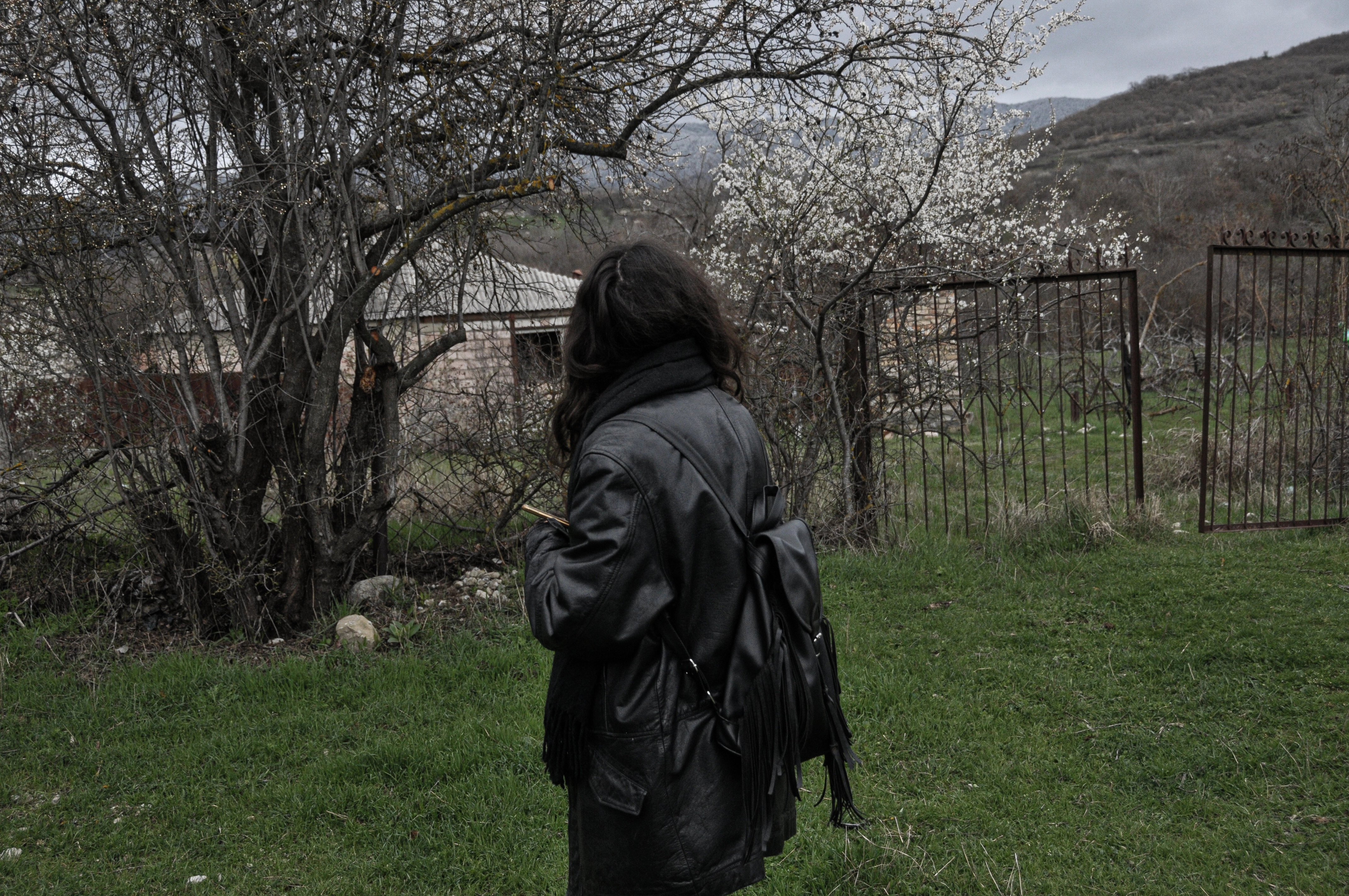
At the beginning of March I went with Tamari in Koshka village which is bordering Disevi where she comes from, One of the villager told us that local people have many problems since the ongoing conflict, going deep in conversation we went up to the cemetery of the village which is divided in two “Here are some graves which half is controlled by Russian forces” Says Lia Mikeladze (56) the local in Koshka village. But before telling the story of Lia we went to the backward of cemetery as there was an open gate, a path which continued alongside the house, a house where grandpa Juju died. Tamari wipes tears away... After the war the Georgian government gave houses and built IDP settlement to those whose houses are on the occupied territory. I believe it feels different when you are refugee in your own country.
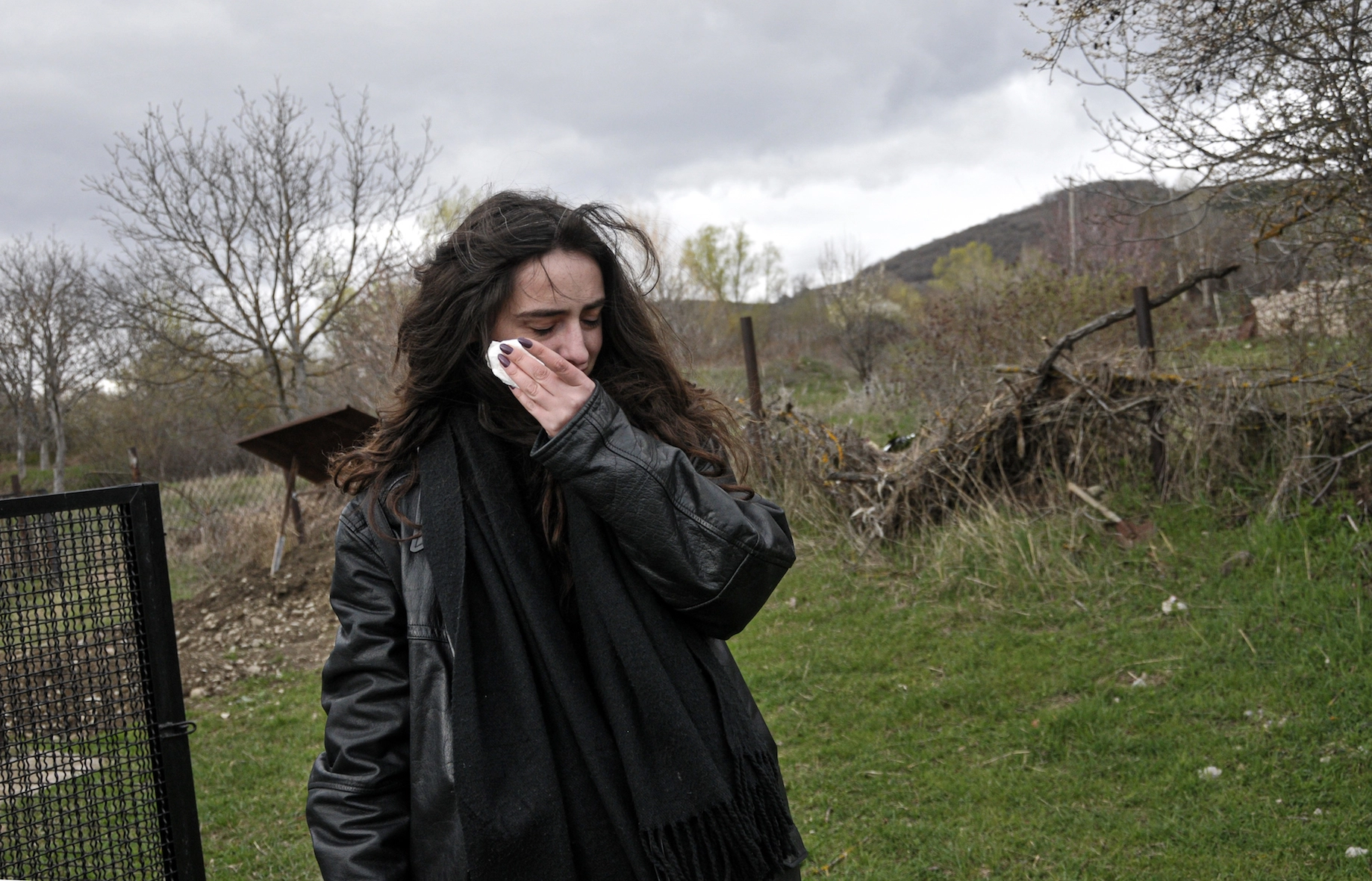
Lia Mikeladze (56) from Koshka village used to be a music teacher in Disevi village and remembers when Tamari was her pupil at the elementary school. But the aftermath of the conflict made relations to be lost.
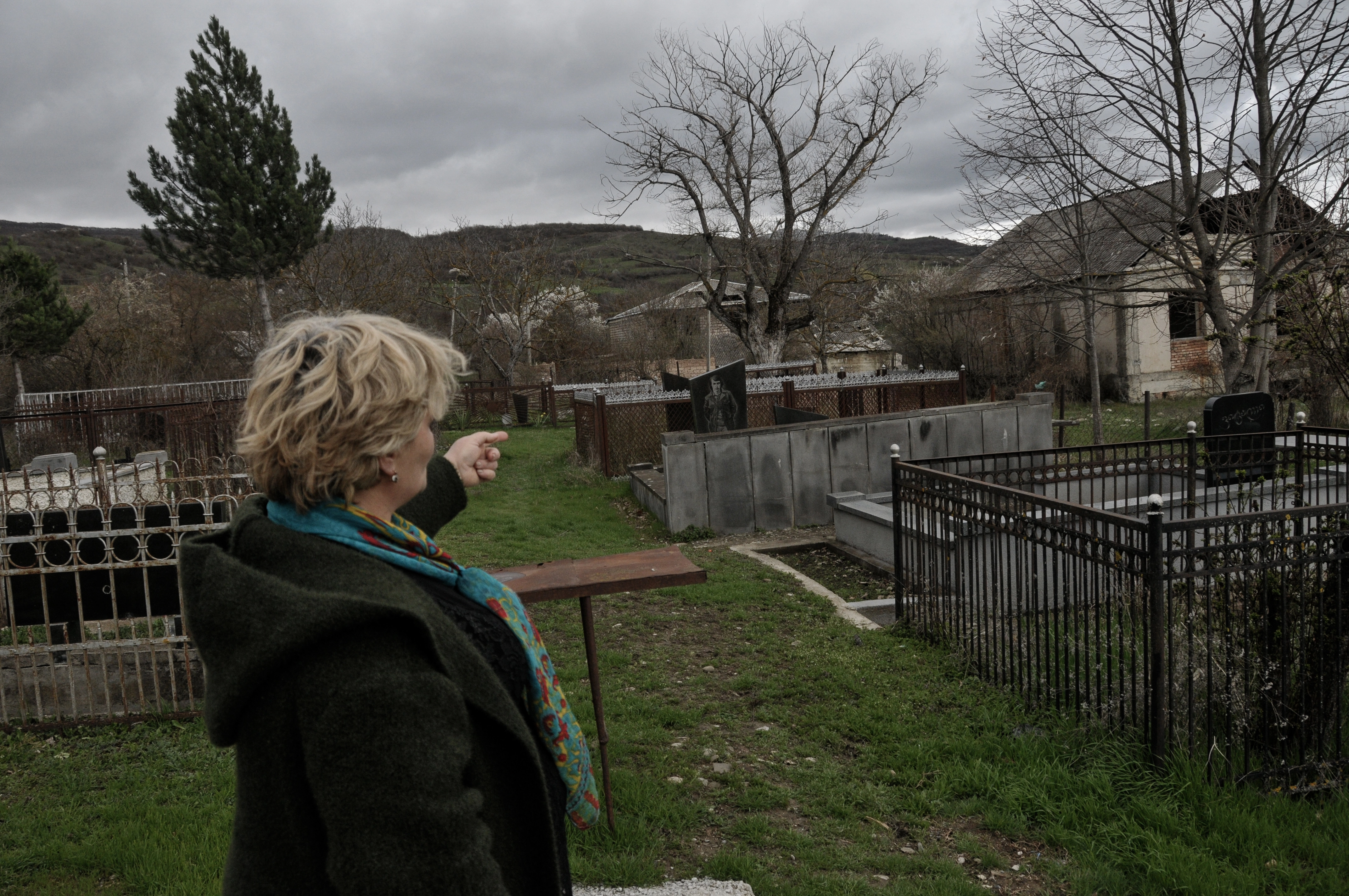
“Russians burned my daughter’s house, they bombed everything they saw around and aircrafts flew over our houses. There were cracking sounds everywhere. The soldiers were either lost or something or other, and when they were going to the hospital, they came through Koshka. My husband stayed behind to take care of his parents and house while I left with my brother-in-law. Since old men weren’t being targeted yet, my husband would hide with neighbors. One Ossetian was leading the patrol. He knew these men and calmed their fears.
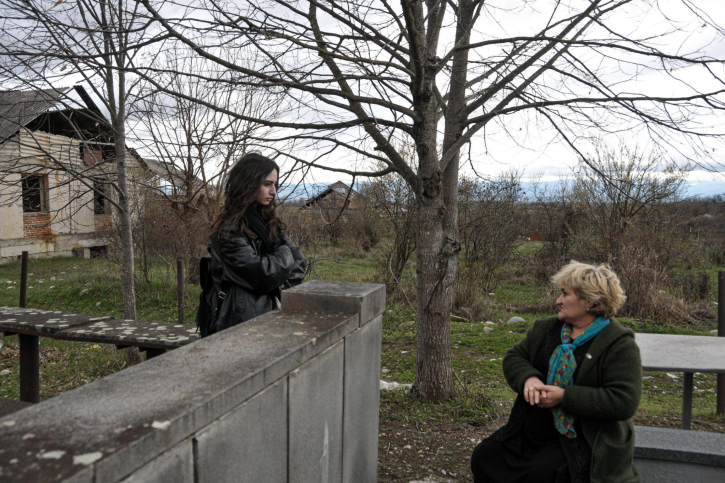
Though on the 12th of August, he warned that the Cossacks were coming. He said, they’ll kill all the men, you must leave the village right away. Everybody got on the tractor and took off. Russians lined men up together and poured fuel. They were about to light them on fire, when one pretended to faint. Before they picked him back up, someone walked by, and they didn't end up setting them on fire. That's how they made it out alive. Soon after two of them had heart attacks.”
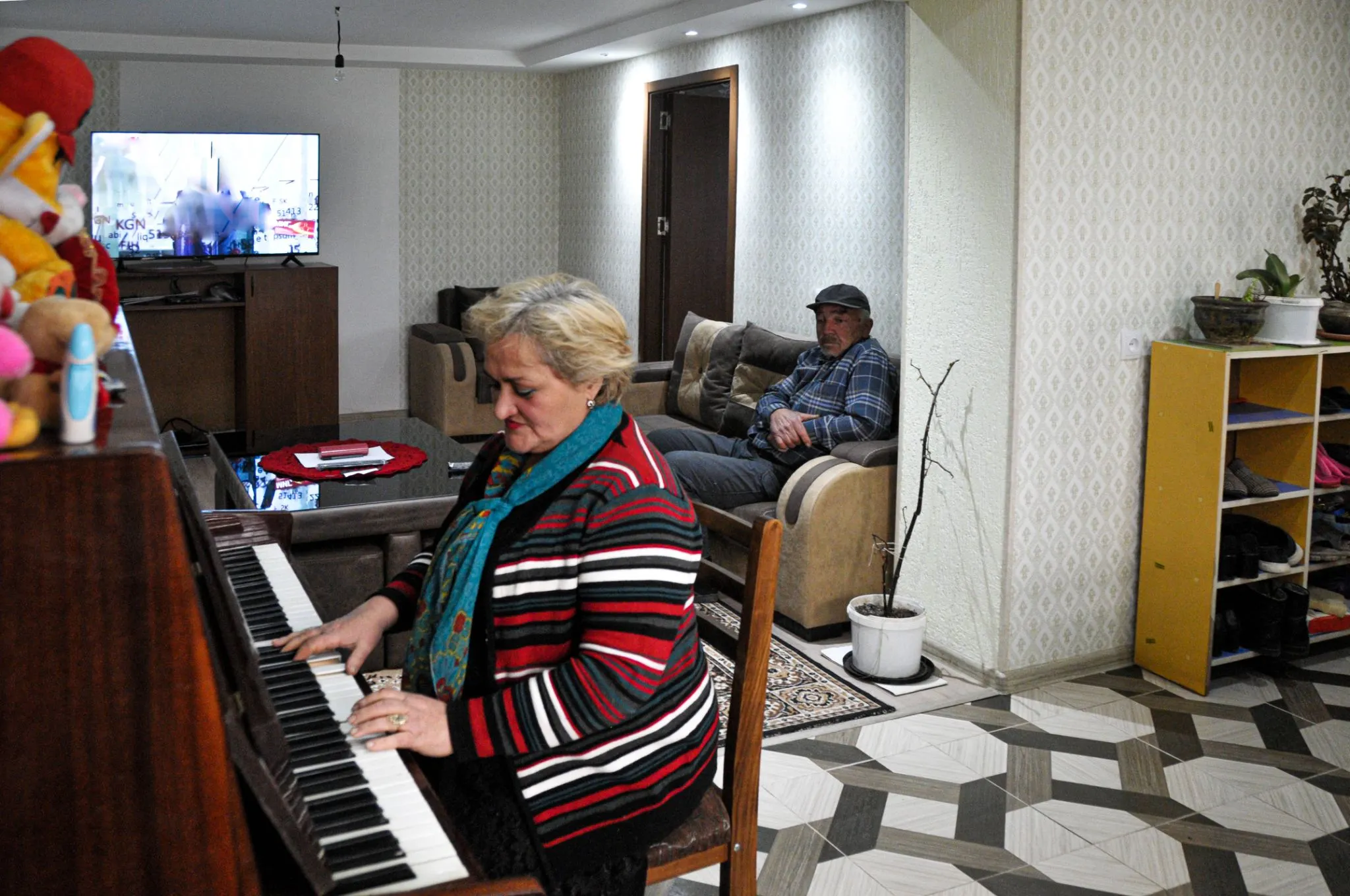
Valia Valishvili (88), who lives alone after his husband’s Data’s death in 2021, on the side of Georgia's de facto breakaway region of South Ossetia, in the village of Khurvaleti, Georgia. Valia and his husband became a symbol of the occupation of this frightened frontier existence, back in 2013 after one day they found a barbed-wire fence had been erected in the night, putting their home on the Ossetian side of the boundary.
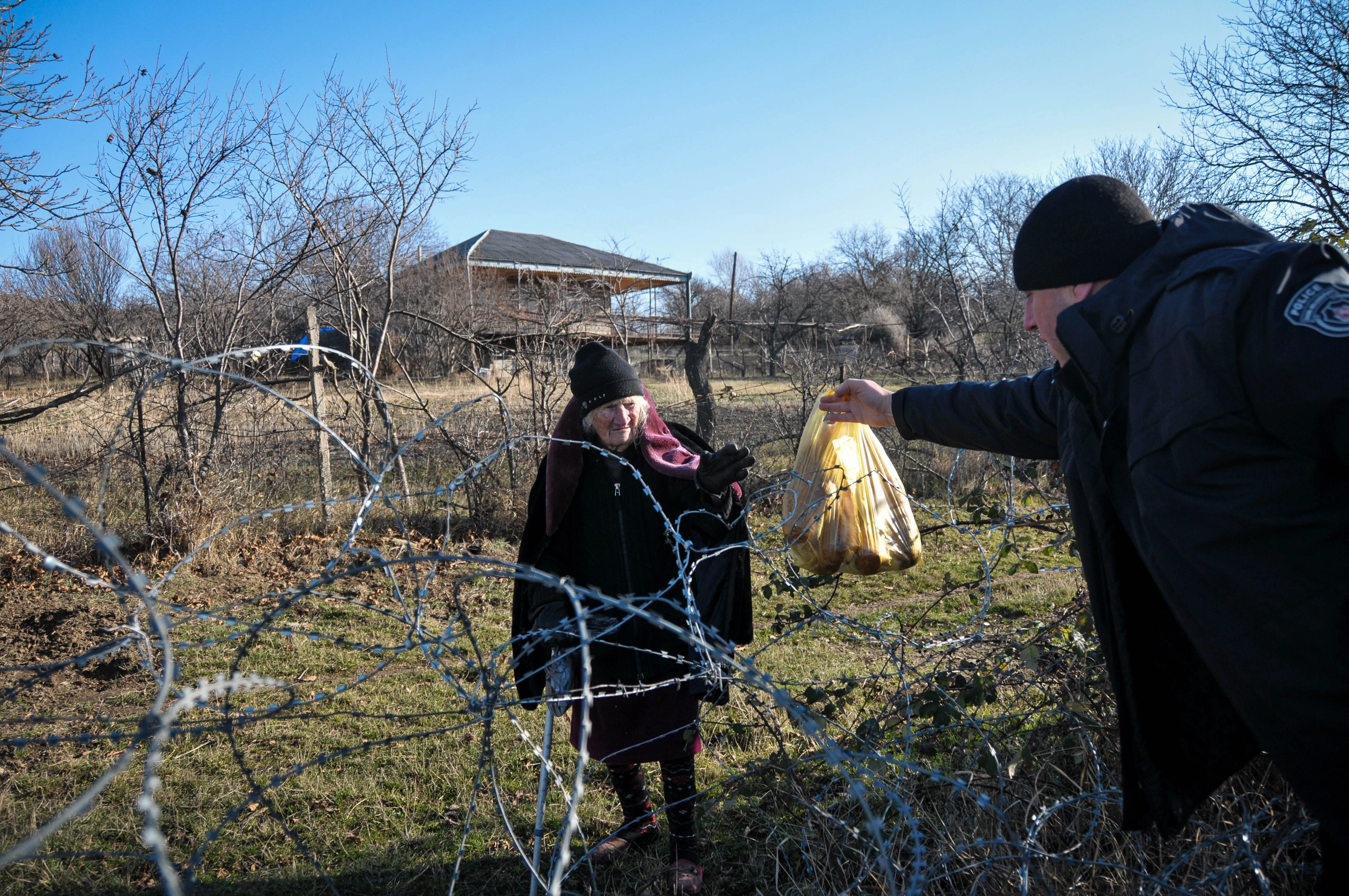
He became well-known in Georgia for defiantly staying put and speaking out publicly to the media, despite the risks, they would cross the boundary to get his pension and to buy food, sometimes passing money to old neighbors through the fence to get him bread. Valias husband Data was once jailed after going across to vote. On his death bed at the age of 88, his final words addressed to Valia were a plea not to abandon their house and homeland; "Do not leave the house, do not go anywhere, sit by the stove, the Georgians will help you," his family recall him saying. He was buried in the break away region of South Ossetia, Russian backed separatists put a checkpoint, next to the house where Valia lives, “sometimes Russians come to rob stuff from my house, I’m not in fear of them, they have to fear of Georgians and Georgian unity’ says Valia.
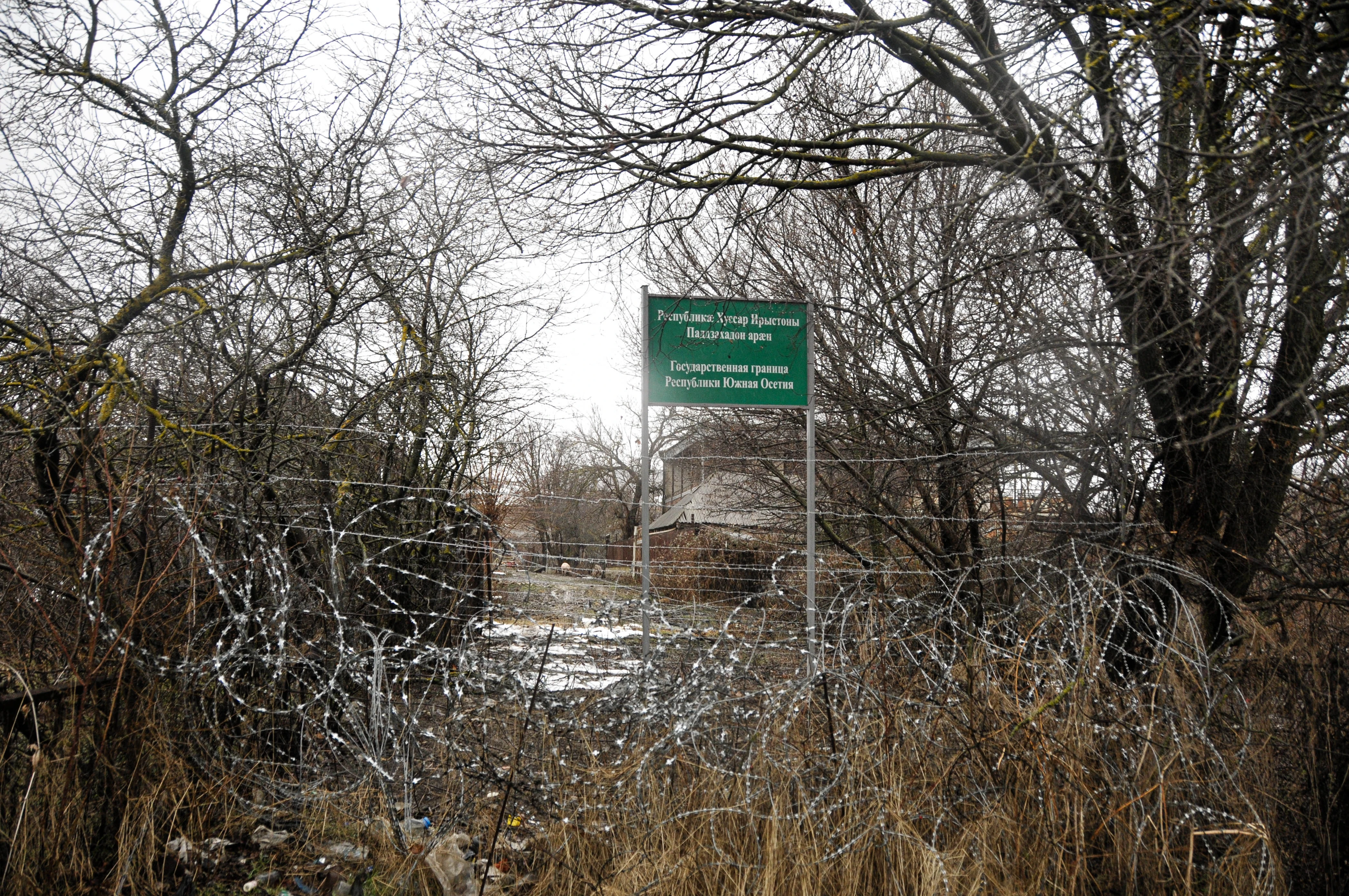
When Nora Batonisashvili hears a dog barking she knows that Russians ar close to her house. Since the events of 2018 Nora never stepped foot in her own yard which is located on the backside of her house. Nora Batonisashvili (93) a local farmer lives in khurvaleti villages but originally Ossetian. She can no longer access these grounds for fear of being arrested and accused of trespassing in another state, it’s a daily struggle for her, even living in her own home and sleeping, In fear that Russians will enter her house and abduct her and her family. She survives on a monthly pension of 360 laris ($120) and subsistence farming which hardly covers her needs.
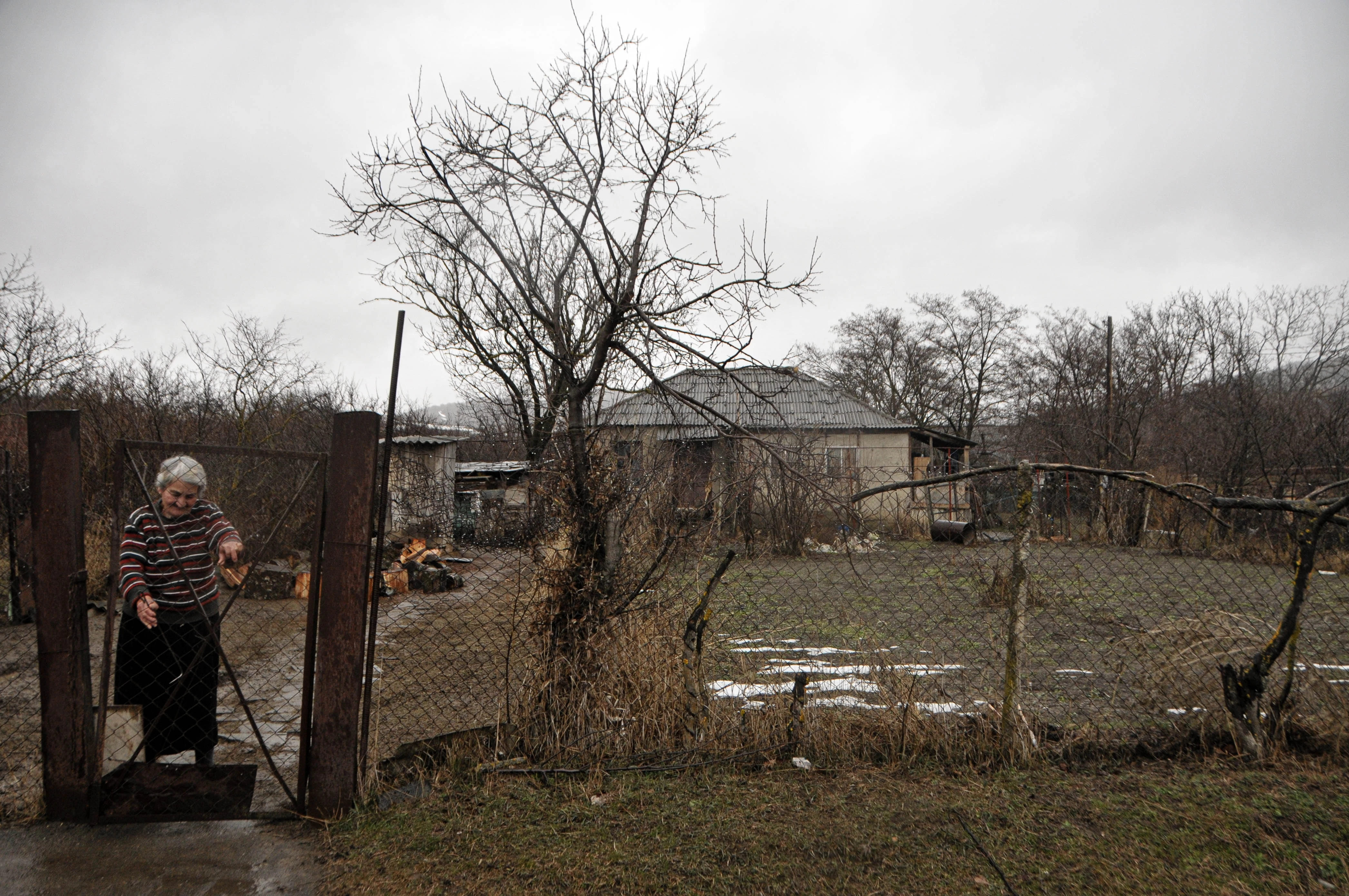
“We have no means to repair the roof that is constantly leaking. With the pension I just buy medications and also have to purchase food since we lost access to most of our agricultural land and a large orchard” Says Nora, she has only a small area in front of house left to grow vegetables. The village territory continues to be fenced off by Russian forces following the 2008 five-day war with Russia.
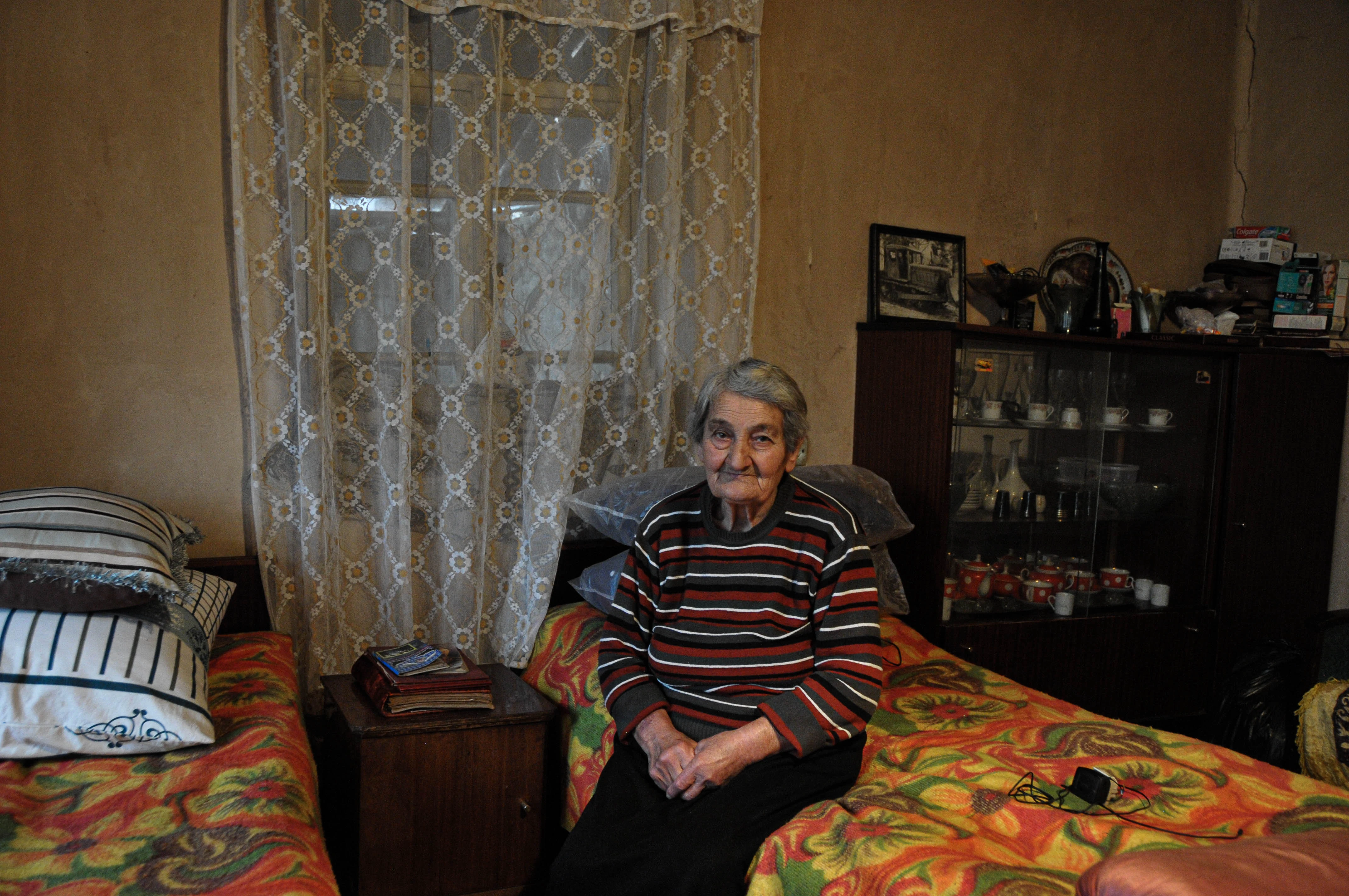
Georgia, The village of Nikozi, which rests just south of the South Ossetia border, was heavily bombed during the Russo-Georgian War in 2008. At the time of the conflict, Metropolitan Isaiah of Nikozi and Tskhinvali Eparchy, led a congregation that included people on both sides of the border.
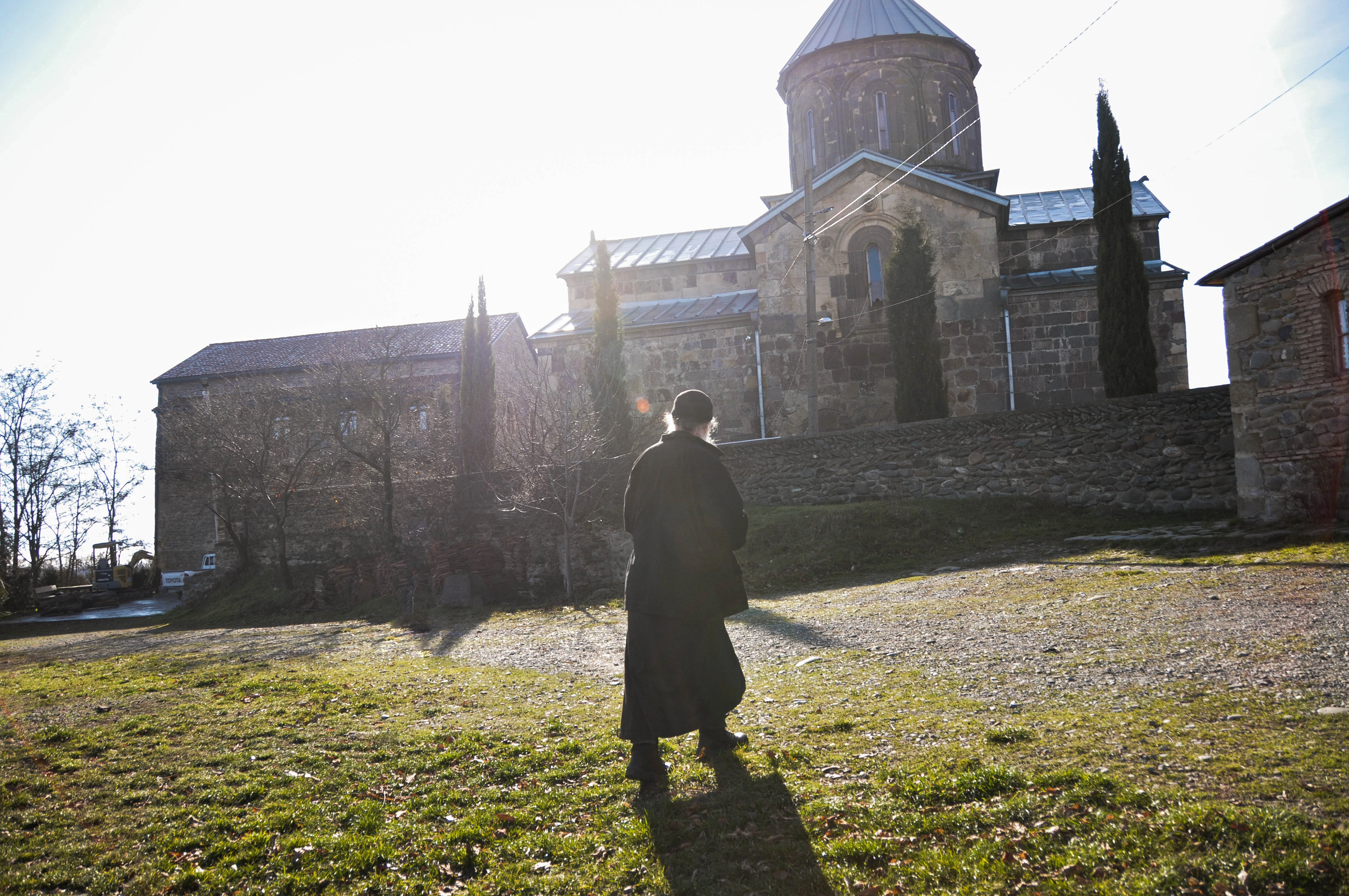
He chose to stay in South Ossetia with a portion of his community for three years, until finally returning home to Nikozi. The are few villagers in Nikozi, many left their houses in order to get abroad and work, there are about few ten families left in the village.
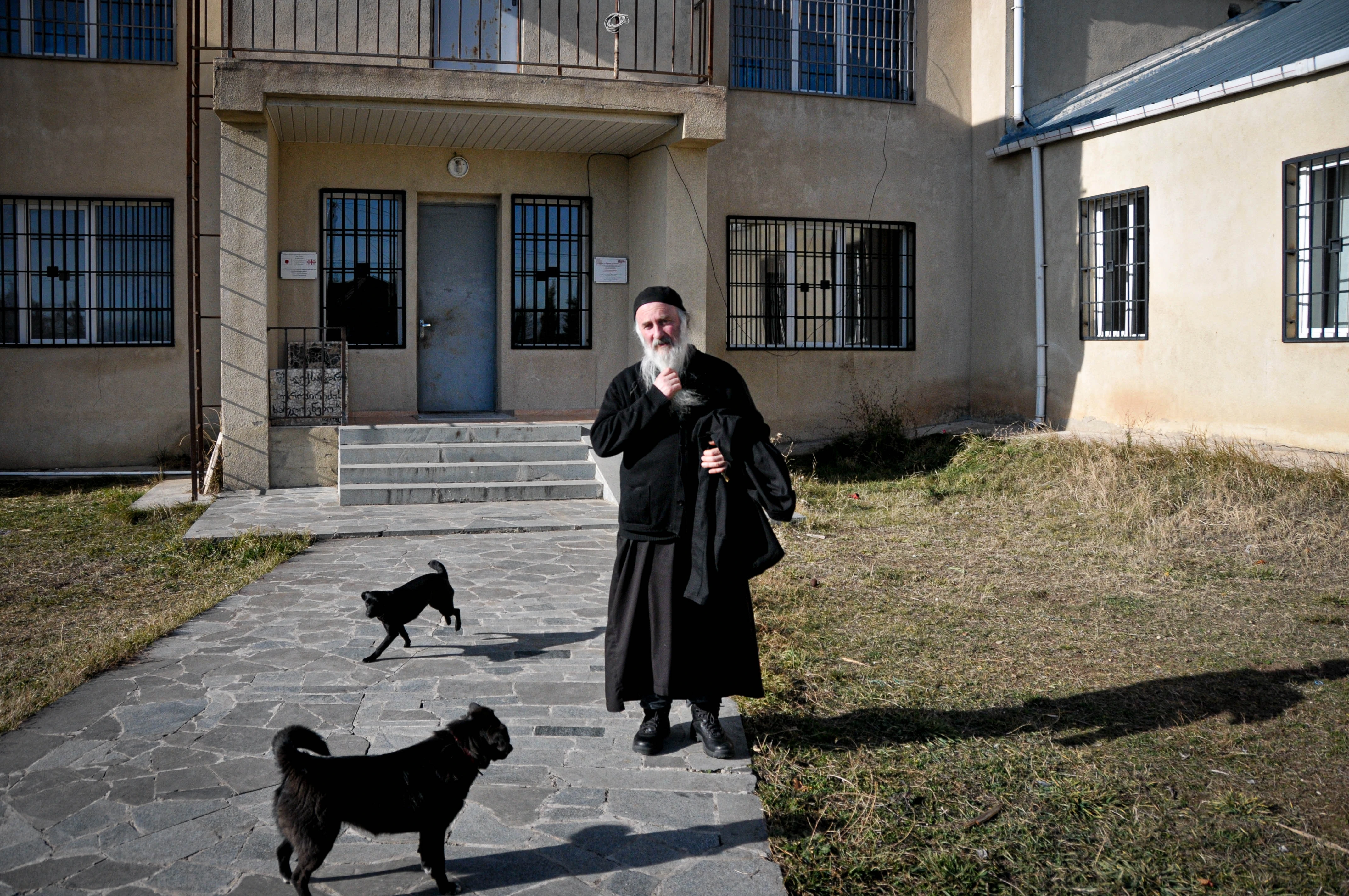
Author: Nicolo Vincenzo Malvestuto
We Recommend
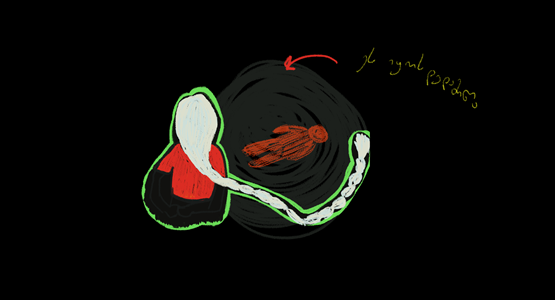
Thoughts on a War
07.08.2022